Moving to a new country is a weird experience, especially after the adrenaline wears off. In the beginning everything is overwhelming, delight and dismay alike. Then, inch by inch (centimeter by centimeter), the newness gets normalized.
Still, nearly two years in, there are days when I look around and say, “WTF am I doing here?!”
On the surface, moving is moving is moving. There are similarities to the experience of uprooting and unsettling no matter whether you’re relocating around the corner or across the world.
In my 20s I pulled up lifelong stakes in Illinois and reburied them in California. In those early post-move years I was bemused/enchanted by the smallest West Coast things. Like plants. I’d go on hikes and have no idea what any of the growing green things were. It was mostly exciting but also a constant reminder that I was alien here, that I didn’t know how much I didn’t know.
I had to re-discover myself amidst all the rest of the discoveries I was making. Who was I in this new place? Who did I want to be? What might be possible here that wasn’t possible in the place I came from?
Two decades later and 5,000 miles away, I’m asking those same questions in an entirely different stage of life.
Although parts of the process of rebuilding a life in Portugal are reminiscent of rebuilding my life in California, the process of meeting people and making friends is fundamentally unique.
When I relocated from the Midwest to the West, I met people organically. Back then, the internet was a wildly different frontier. There was no such thing as YouTube or Facebook (Mark Zuckerberg was a zit-faced 16 year old in the year 2000). There were no meetups so Illinois transplants could find each other and talk about how strange it was to order a “soda” instead of a “pop.” (Honestly, if those meetups had existed I wouldn’t have gone, so happy was I to leave the Midwest behind.)
Instead of googling my fears and stalking new acquaintances on Instagram, I went out to lunch with my new coworkers and swapped gardening tips with new neighbors and ordered drinks in bars with someone sent down the friendship chain. “Oh, you’re in San Francisco now? I have a friend there! Here, let me give you her number so you two can meet.”
Like a stream that starts as a trickle and then, over the meandering course of miles, swells to a bona fide body of water, our circle of San Francisco friends expanded. Over time, we found our place in the midst of things and built a life we loved, with people we loved. It was slow and steady and made a solid kind of sense.
I had a vague sort of expectation that the same thing would happen here in Portugal. But it’s been a whole different kind of water metaphor — surprising instead of steady in its emergence: A deluge. A tsunami.
The only other experience to which I can liken it is freshman year at a university.
At a university, the newcomers arrive from all directions. Different cities, states, countries even. You’re all in this together, but you’re not all in this the same way. Some have friends in this new place, some know not a soul. Some arrive well-funded. Some have scholarships. Some work three jobs just to afford tuition. Maybe someone has a parent who matriculated from this institution, a cousin, a high school teacher. Some have visited previously as part of a tour during which they scouted out all the campuses within a 1,000 mile radius trying to find the most perfect fit. Some applied and were accepted without ever even setting foot on campus before. Some live in student housing with randomly assigned roommates. Some shack up off campus in decrepit but grand old houses surrounded by trees.
Whoever you are, wherever you come from, when you first show up, you’re lost. You take the elevator to the wrong floor in your dorm. You miss class because you tried a new shortcut and ended up in the quad. You have a panic attack in a bathroom stall because you got a good look at the syllabus and there’s no way you can handle all that homework.
Whatever size fish you were in the pond you previously inhabited, you are starting over here. Your score is zero. No one knows you, no one knows what you are capable of. And even if they did, they wouldn’t give a shit. This realization is both exhilarating and terrifying. It’s one of those things that can destroy you or set you free.
You could build something new on this ancient hallowed ground, if you dare. Who do you want to be here, now, in this place?
After a semester or so the social groups begin to solidify. The cliques sort themselves out. By spring of sophomore year you start to feel like you might know what you’re doing. You’ve settled into this life. You’ve sorted out your peer group and no longer say “Yes!” to every random invitation.
Some of the other students have already transferred out to other schools but newbies keep flooding in, no matter the season. You watch them stumble down the street, drunk on their own hubris like they’re the first ones to discover this place. You snort in derision, feeling superior. Surely you never looked that stupid. Then you cast a look over your smug shoulder and see the seniors giving you the same tired look you were just wearing just a moment ago. Oh.
There is always more to learn here. Sometimes you think you’ll never be done. Sometimes you think that’s the point.
The analogy’s not perfect. But it works, I think. Perhaps not for all immigrants everywhere, but it feels apt for us English speakers in Setúbal.
Soon after you arrive here (and often even before you step off the plane), you’re earmarked for a peer group simply because you share a language and/or you come from the same hemisphere. But many times that language and location is all you have in common with your fellow immigrants/expats/nomads.
Sometimes that realization hits immediately. Sometimes it takes a few coffee dates.
Even more so than kids at uni, we’re all sharing an experience but we did not all come for the same reasons. We do not all hold the same values or want the same things.
Some of us work full-time, some no longer need to. Some of us are still raising kids, some never had any. Some emigrated on a lark. Some pop in and out at their leisure. Others fled incoming bombs. Some came because they saw the writing on the wall. Some came looking for Margaritaville or a change of scenery here at the end of their lives. Others came to find a better future for themselves, for their children. Some plan on staying forever. Some might be gone before the next winter rains.
Whatever our reasons, whatever our differences, we saw something we loved in Portugal, in Setúbal. We found it on a map or by word of mouth or YouTube walking tour. We’re here because we saw a place where we could chase our own particular dreams and we seized the chance to do so.
When I first arrived in Setúbal nearly two years ago, there were only a handful of Americans here. Now it feels like more and more arrive every week. Like a secret has been uncovered. I know that feeling is an exaggeration, though. In the larger scheme of things, there really aren’t that many of us here. When the government counted heads last year, they numbered Portugal’s inhabitants at 10.2 million, 750,000 of whom are immigrants. Only 7,000 of those immigrants are American. I don’t have an exact statistic, but in Setúbal there are probably less than 200 of us here, even in the wider area outside the city itself. I doubt the longtime residents pay us much attention.
But we notice each other. Now and then we bump into one another online or on the avenida. We hear that homeland accent. We recognize faces from Facebook groups, from friends of friends, from that one time we met at a pastelaria or rubbed shoulders at some social mixer. We’re not friends exactly; we’re barely acquaintances — but we have chosen to build our lives on this Setúbal campus and there’s a camaraderie in that. So we stop for a second to say “Oh, hi! Hello!” and luxuriate in the comfort of our native tongue. (Unless we’re having one of those days — in which case we hide behind our sunglasses and pretend we don’t recognize anybody.) Eventually we move on in opposite directions and carry on with our days.
Maybe we’ll meet up again, accidentally or on purpose. Maybe, in time, we’ll truly become friends. Maybe this random meeting was our one and only.
What I’ve learned here in my sophomore year is that building a social circle around a shared language or nationality can be a super weird way to make friends. Weird isn’t bad, necessarily. It’s just not the usual. I’m still getting used to it.
Some days I’m grateful for the ways in which the virtual world intersects with the tangible one, for the ways in which it makes life easier. Other days I’m annoyed by the ways in which it makes life overwhelming.
In 2021 when I first arrived, COVID protocols were still in place. The borders were closed and we wore masks outside, even in the shimmer of summer. Back then I accepted any and all meetup requests, partially to revel in the freedom of being able to widen my world again after so many long months of lockdown and quarantine and Zoom screens. Also, I was new here. I was the freshman. I didn’t know anything or anyone. I was trying to be open and humble. I was trying something new. Trying to be someone new — or at least an updated version of myself.
I forgot how high my introvert level is set, though, and I’d often retreat from those coffee hours completely drained.
“How’d it go?” Marido would ask as I tore of my mask and flopped dramatically across the mattress.
“I think maybe I’m trying too hard?” I’d moan. “It feels like I’m going on a thousand first dates.”
These days I’m much harder to make a date with. I’ve grown more circumspect. I’ve pulled in the fishing net and now I only dip the teeniest of hooks into the friendship dating scene.
Moving out of town to the countryside in early 2022 enabled a particular kind of hermitage, one that I dreamed of during my latter days of living cheek-by-jowl with big city neighbors back in California.
Sometimes I worry that I’ve embraced the recluse life a bit too enthusiastically. Probably I should put myself out there more? Maybe I should show up at the cocktail hours once in awhile?
But I don’t drink and also, that’s not the kind of life I came here for. It’s not who I am. Besides, I’m no longer a freshman on this particular campus.
So I remind myself that it’s ok to say No to the shoulds — to the expectations, internal or external, that there is a particular way I should be living this immigrant/expat/nomad life.1
In thinking about all of this, I’ve been reminded of Chanel Miller’s cake metaphor. “Imagine time is like a cake,” she says. “Each day you get only one. I am quick to give it away. And often find myself left licking the crumbs. The requests will keep coming if you don’t draw the line. I resolve, from this day forward, to protect my cake.”

To bottom line it: It’s ok that we Americans and Canadians and South Africans and Brits and Dutch folks all speak the same language and love the same little seaside town. It’s ok that we don’t all know each other, that we’re not all the best of friends. It’s ok that we want different things and prioritize different experiences. It’s ok that we share (or protect) our time cakes in different ways. It’s ok.
We can all be here now without all being here together.
A TINY BIT OF HOUSEKEEPING BEFORE YOU GO…
Dear readers,
I’ve been doing a lot of thinking about readership and paid subscriptions and how easy it is for writers to give away their work for free. Since substack turned on their Pledges feature a couple of months ago, many of you have pledged to become paid subscribers. I can’t tell you how much I appreciate that indication that you find my work, my writing, to be valuable.
The thing I don’t love about paid subscriptions is that they leave a whole subset of people out in the cold, on the other side of a paywall, or unable to leave a comment or read the entirety of a post. I’m not into that sort of exclusion.
But on the other hand, I do spend a sizable number of hours spinning words into this space. It’s a labor that I love to do, but it’s labor nonetheless.
And so, a compromise: tipping. I have set up an account with Tipeee (please ignore the ridiculous nature of those triple eee’s! I was not in charge of the branding.) Tipeee is “the #1 platform in Europe for content creators and artists to make a living from their work, thanks to the support of their community.”
Basically, if you enjoy my writing and you’d like to support it/me in some small way, you can leave a tip here, on my Tipeee tipping page. I’m not sure how well this all will work or how you all will feel about it, but let’s give it a whirl for awhile and see what happens.
Whether you’re a longtime reader or a first-time visitor, I thank you for being here. I am grateful to each of you for reading, for commenting, for sharing, for sending good vibes. I hope you’ve no intention of stopping now, because I certainly don’t!
See you next time,
-LaDonna
There is a whole second half of this line of thinking that goes down a rabbit hole of expectations and performance reinforced by social media and internet nonsense. But that’s a post for another day!
Copyright © 2023 LaDonna Witmer




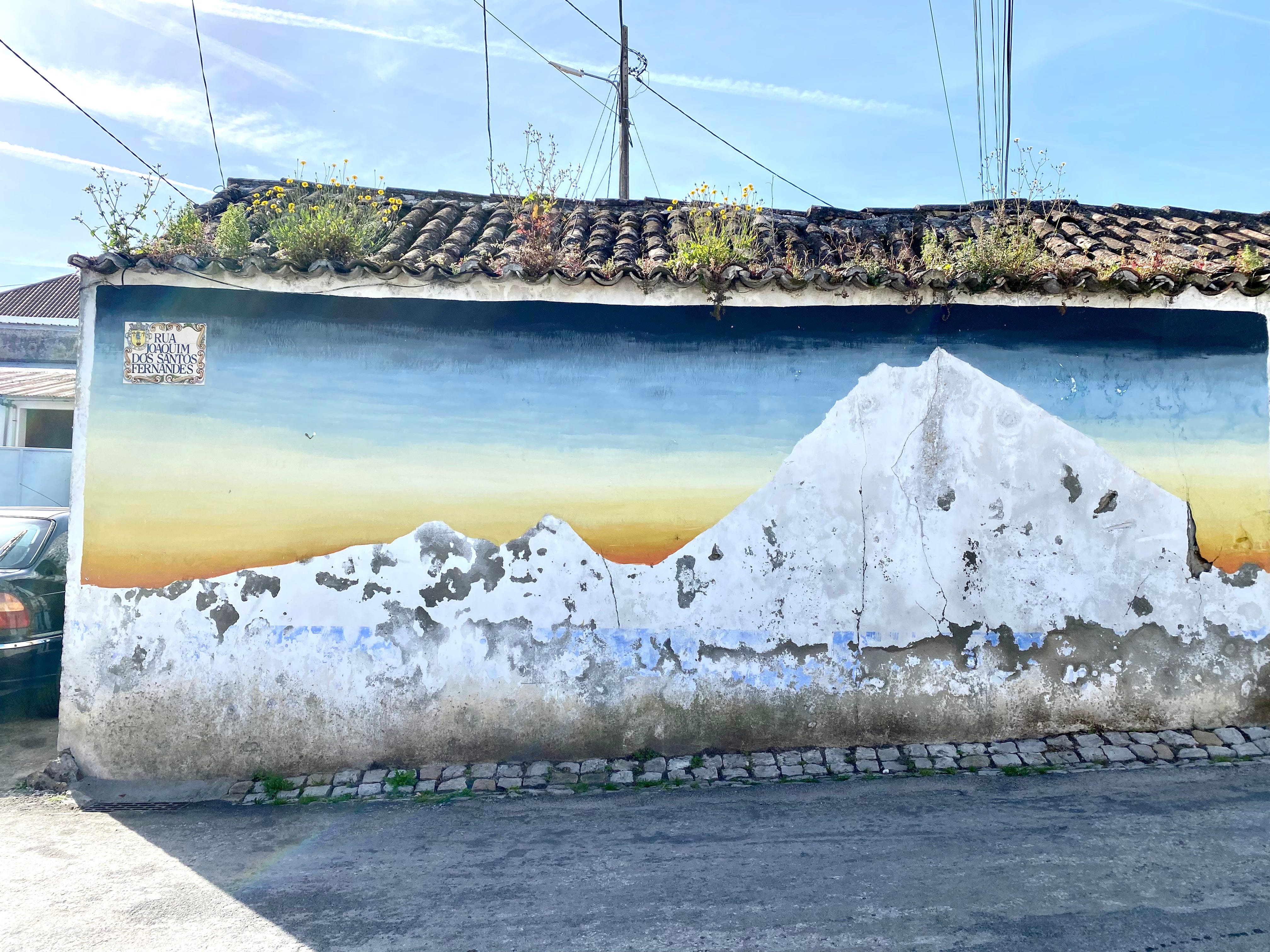


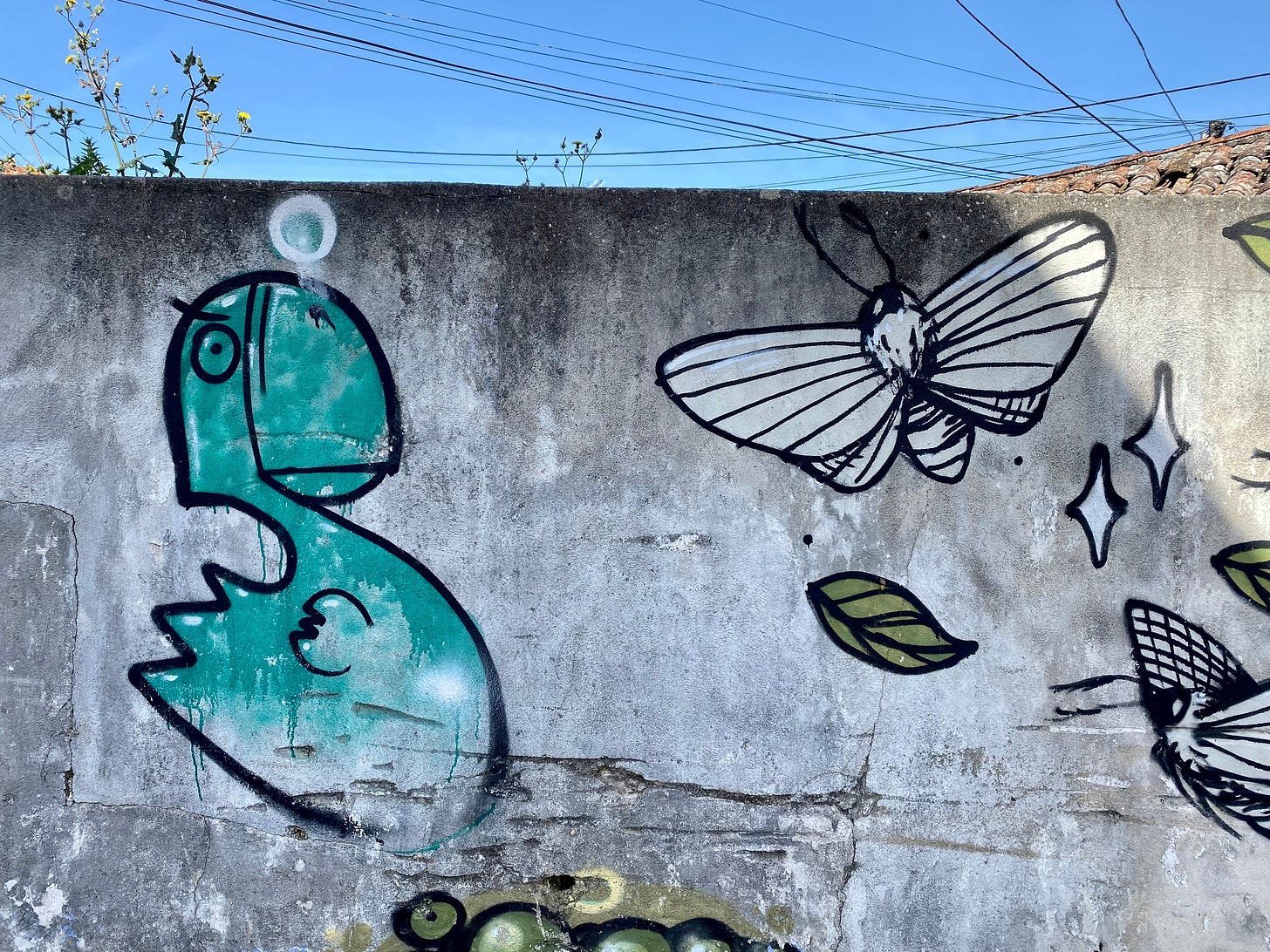
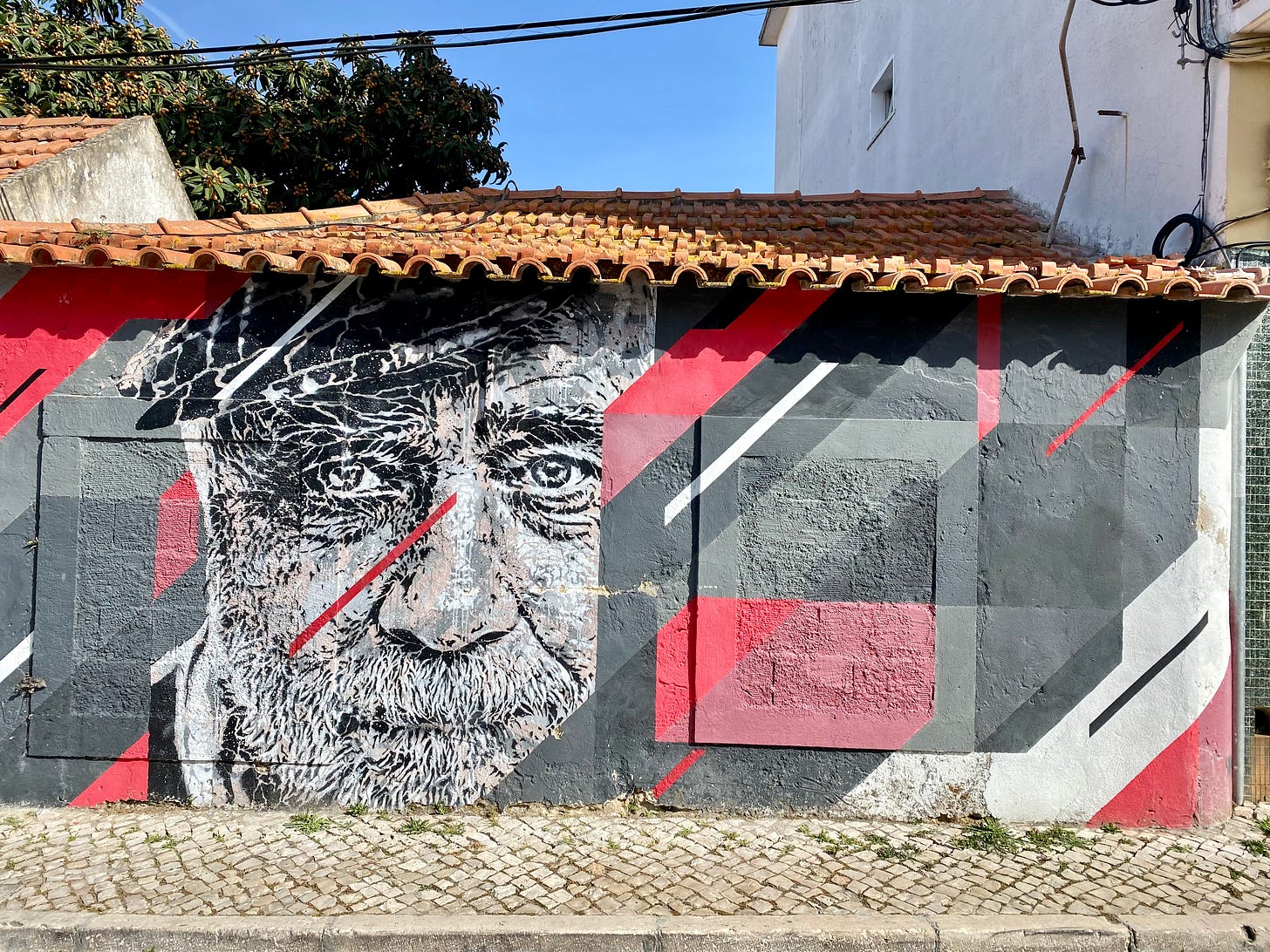
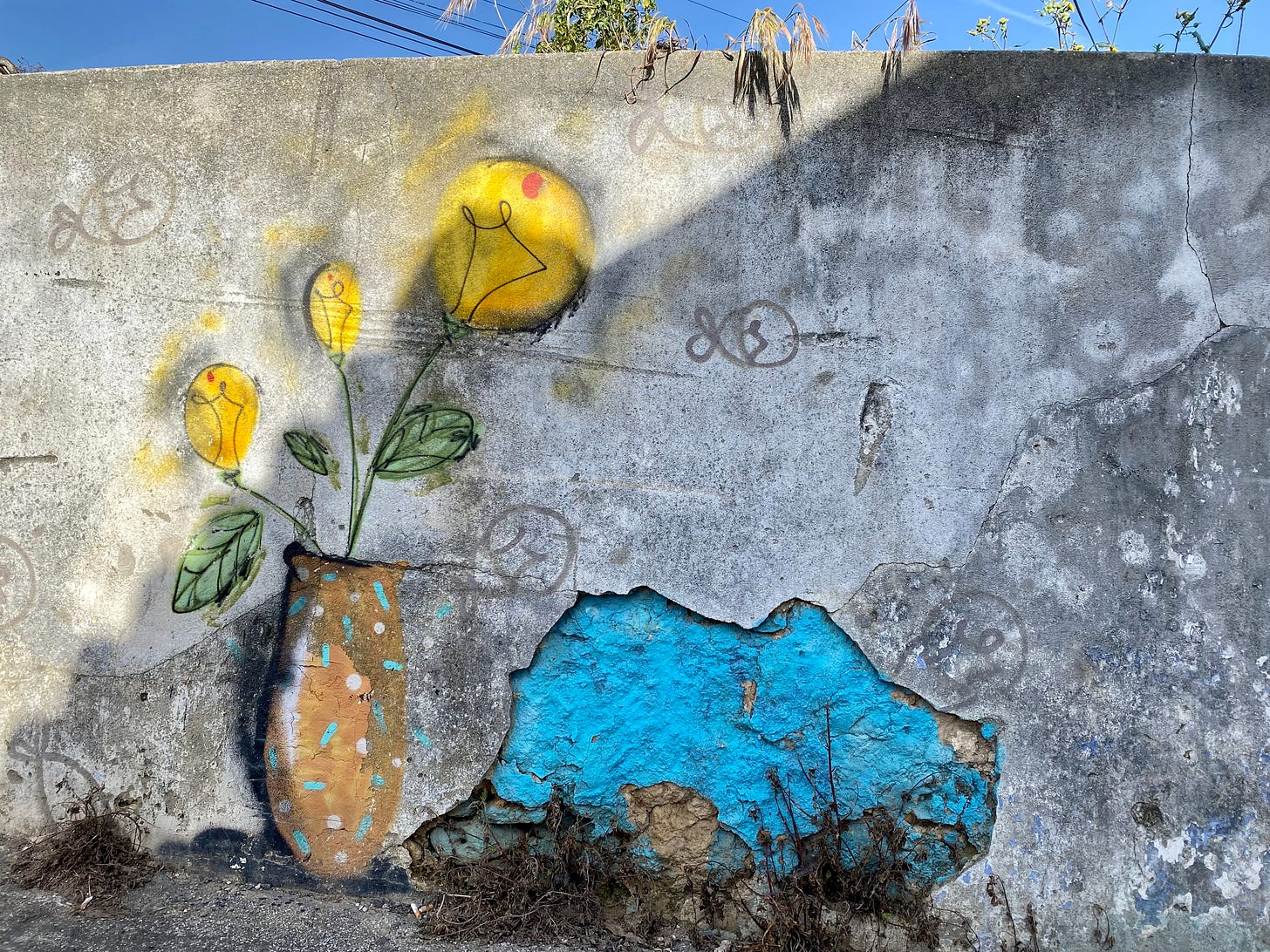
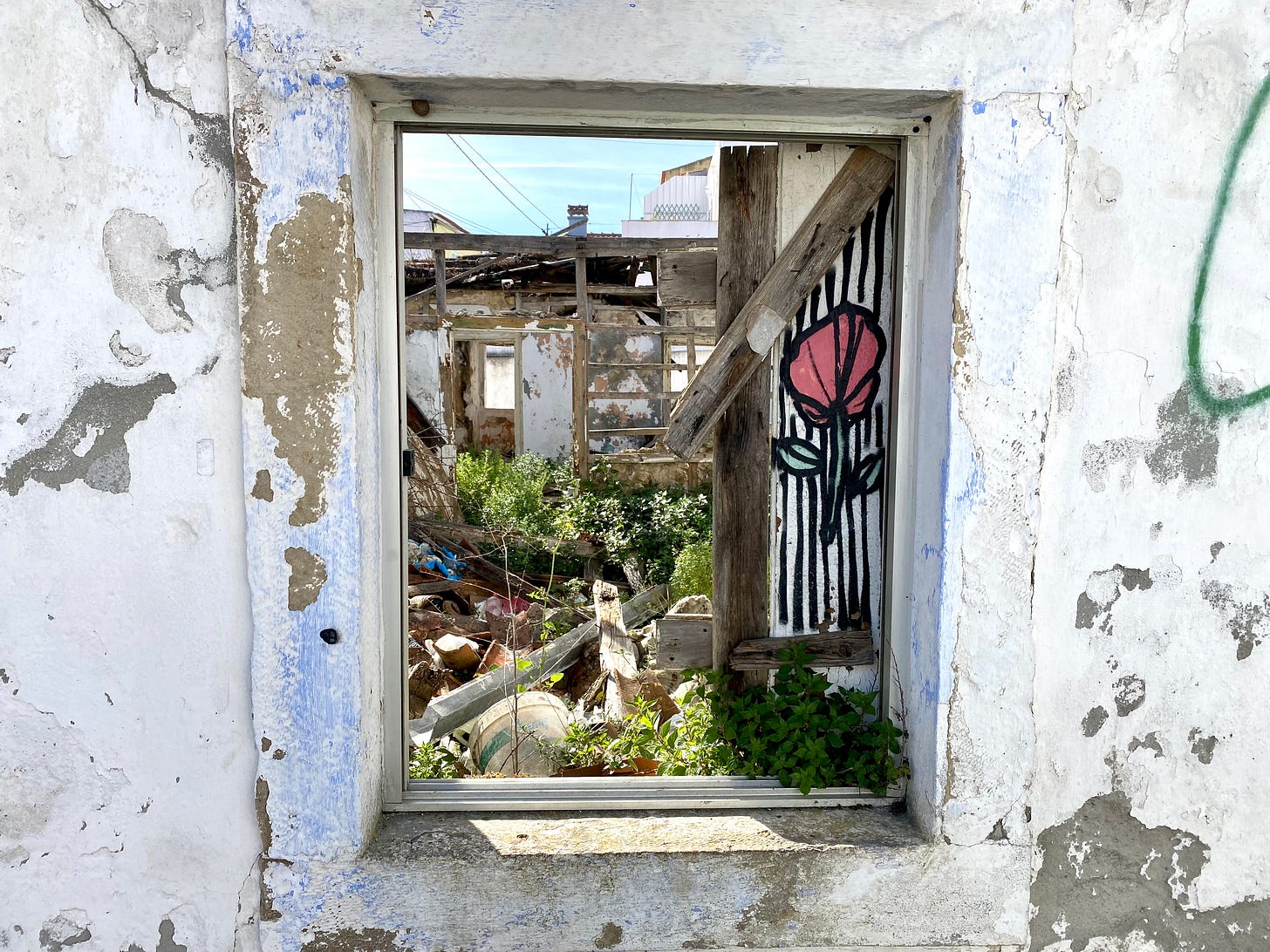
Like many others have mentioned, this post rings very true to me too, although I have a slightly different trajectory. I've moved to the UK from California for over 13 years, plus a year in France, and it is challenging to make friends every time we move. We are now in our second location in the UK, and there isn't any sort of newcomers or 'Americans' group. (We have never been in London, so no large American clubs or other groups like that). When I first moved to the UK, I did a massive amount of networking for professional reasons and it was exhausting. The year we were in France, I met up with a group of other 'partners of academics' who had also relocated due to their partners jobs. These people were from all over the world, and I found that to be a very fascinating and eclectic group to spend time with, more so than the very active US ex-pat group who I did a few things with now and again. Like many of you mention, coming from the same birth country has no bearing on whether you will be compatible. Eventually I found like-minded people in both groups, but of course it takes time. The three people I am still in touch with are German, French, and a Taiwanese person who I met through the Americans. We are slowly bedding in now to our new location in the UK, and when I am feeling lonely I remind myself that it takes time to find the gems, but they will be found, eventually. Good luck to you all in Portugal-we love it there too! Luckily we have had work projects there so we get to visit often. LaDonna, your photos and words are really wonderful. Thanks.
I very much enjoyed this piece and felt it personally. I agree that a shared language is a weird way to make friends. And I totally enjoyed the line where you said it felt like you were going on a thousand first dates. Just because someone is an English speaker doesn´t mean they share my world view, sense of humor or politics. I have had to realize that it will take quite some time before I build a circle of friends that my reflects my tastes and interests. Thank you for posting!